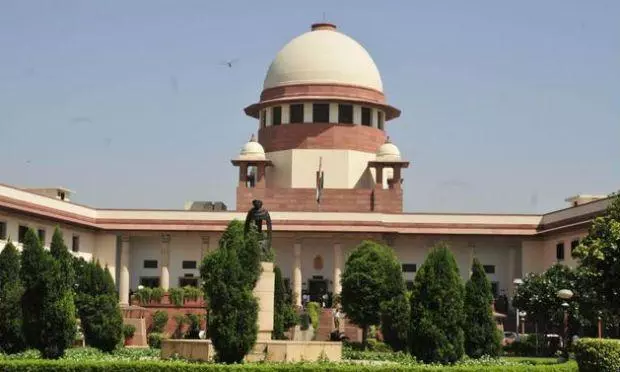SC to Take Up Plea on Money Bills

New Delhi: The Supreme Court on Monday agreed to consider a submission for setting up a constitution bench to hear pleas challenging the validity of passage of laws like the Aadhaar Act as money bills allegedly to bypass the Rajya Sabha. Welcoming the apex court move, Congress general secretary in charge of communications Jairam Ramesh in a post on X, said, "In the last ten years many Bills have been bulldozed through Parliament by having them declared 'Money Bills' under Article 110 of the Constitution. A good example of this is the Aadhar Act of 2016."
The passage of bills like the Aadhaar Act and even amendments to the Prevention of Money Laundering Act (PMLA) as money bills, ostensibly to circumvent the Rajya Sabha when the NDA did not have a majority there, has been at the centre of a major political and legal row.
The BJP currently has 86 MPs and the ruling NDA 101 in the 245-member Rajya Sabha where the majority mark is 123.
Mr Ramesh is one of the petitioners who have challenged the passage of the Aadhaar Act of 2016 as a money bill under Article 110 of the Constitution.
Senior Advocate Kapil Sibal told a bench comprising Chief Justice of India DY Chandrachud and Justices JB Pardiwala and Manoj Misra on Monday that the pleadings are complete and the petitions needed to be listed for hearing.
Mr Sibal said since the matter is already there in the list of scheduled constitution bench hearings, such a bench should be created on a priority basis. To this, the CJI said, "I will take the call when I form the constitution benches."
The Congress welcomed the top court's decision agreeing to consider setting up a constitution bench to hear the pleas. The party hoped a final verdict would come before Justice Chandrachud retires in November this year.
Earlier, the top court had said it would constitute a seven-judge
bench to consider the issue of validity of passage of laws like the Aadhaar Act as a money bill.
A money bill is a legislation which can be introduced only in the Lok Sabha and the Rajya Sabha cannot amend or reject it. The
Upper House can only make recommendations which may or may not be accepted by the Lower House.
In November 2019, a five-judge bench of the top court referred to a larger bench the issue of examining the validity of the passage of the Finance Act, 2017 as a money bill.
"The issue and question of Money Bill, as defined under Article
110(1) of the Constitution, and certification accorded by the Speaker of the Lok Sabha in respect of Part-XIV of the Finance Act, 2017 is referred to a larger Bench," it had said.
The five-judge bench had then struck down in entirety the rules
governing the appointment and service conditions of the members of various tribunals that formed part of the Finance Act.
Earlier, another bench of the top court, while upholding the constitutional validity of PMLA, had kept the issue of passage of the amendments to it as a money bill open for adjudication by a larger bench.
In the Aadhaar verdict, the top court had upheld the validity of passage of the law as a money bill. However, Justice Chandrachud, the present CJI, had penned a dissenting judgment and called designating the Aadhaar legislation as a money bill a "fraud on the Constitution".

